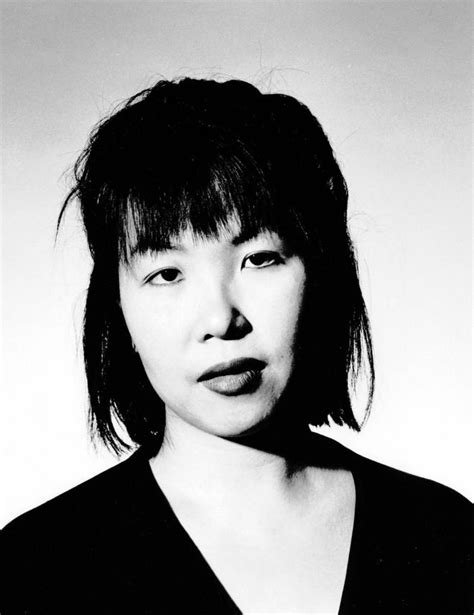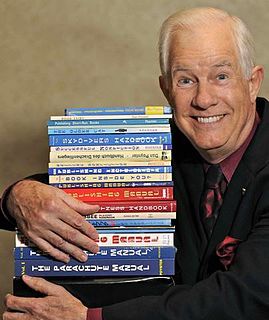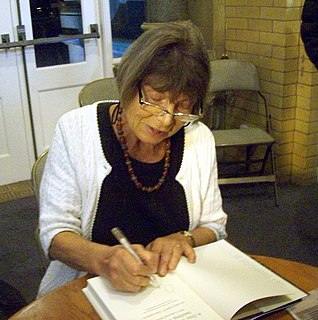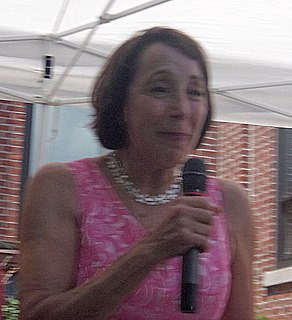A Quote by Rick Yancey
Ever since I was young, 14 or 15, I wondered if you could write a book that combined the visceral thrill of watching a movie with the total immersion you feel when you're inside a good book. And I had some success as a screenwriter before I began writing books.
Related Quotes
In my twenties, it was so important for me to show people I had all these other books and these other sorts of writing in me, .. A lot of authors, if their first book is a success, they're terrified to write a second one. But in my case, since the first book wasn't considered a literary book, I was really determined to show people I could do other types of writing.
I read John Irving's novel 'The World According To Garp' when I was about 14 or 15. It was the first grown-up book that I had read. It is the story of a young man who grows up to be a novelist. I finished it, and I wanted to write a book that made the reader feel the way I felt at the end of that, which was sort of both bereft and elated.
I think the books are the books. They were conceived as books. They weren't conceived as movies. When I write scripts, that's an idea and a situation that I think is a really good idea for a movie. When I'm writing a book, I'm not thinking, "Oh, this would be a great movie." This would be a very interesting book. And I think the books are things that cannot really be adapted into another medium.
About a year after (my stories began being published), magazine editor George Scithers, suggested to me that since I was so new at being published, I must be very close to what I had to learn to move from fooling around with writing to actually producing professional stories. There are a lot of aspiring writers out there who would like to know just that. Write that book.SFWW-I is that book. It's the book I was looking for when I first started writing fiction.
Well, first you have to love writing. A lot of authors love having written. But I enjoy the actual writing. Beside that, I think the main reason I can be so prolific is the huge amount of planning I do before I start to write. I do a very complete, chapter-by-chapter outline of every book I write. When I sit down to write, I already know everything that's going to happen in the book. This means I've done all the important thinking, and I can relax and enjoy the writing. I could never write so many books if I didn't outline them first.
What really annoys me are the ones who write to say, I am doing your book for my final examinations and could you please tell me what the meaning of it is. I find it just so staggering--that you're supposed to explain the meaning of your book to some total stranger! If I knew what the meanings of my books were, I wouldn't have bothered to write them.
The way I feel about every book is this: you don't finish it, you abandon it. All of my books have in some sense failed, otherwise I wouldn't write another one. If I wrote the perfect book, I wouldn't have to write again, and I wouldn't want to. That's not true for everyone, but it's true for me. I could walk away then. But so far I haven't managed to do it.
I began writing books after speaking for several years and I realize that when you have a written book people think that you're smarter than you really are if I can joke. But it's interesting. People will buy your book and hire you without reading the book just because you have a book and you have a book on a subject that they think is of interest to themselves or e to their company.
When I was in fourth grade... this wonderful teacher said you didn't have to write a book report, you could just talk about the book, you could do a drawing of the book, you could write a play inspired by the book, and that's what I did. I got to be so famous. I had to go around to every school and perform it. It was just so natural and fun.
Finding yourself in a hole, at the bottom of a hole, in almost total solitude, and discovering that only writing can save you. To be without the slightest subject for a book, the slightest idea for a book, is to find yourself, once again, before a book. A vast emptiness. A possible book. Before nothing. Before something like living, naked writing, like something terrible, terrible to overcome.
The process for writing a picture book is completely different from the process of writing a chapter book or novel. For one thing, most of my picture books rhyme. Also, when I write a picture book I'm always thinking about the role the pictures will play in the telling of the story. It can take me several months to write a picture book, but it takes me several years to write a novel.






































